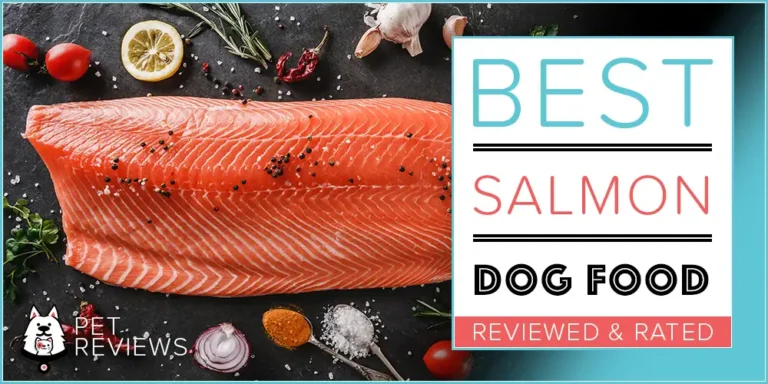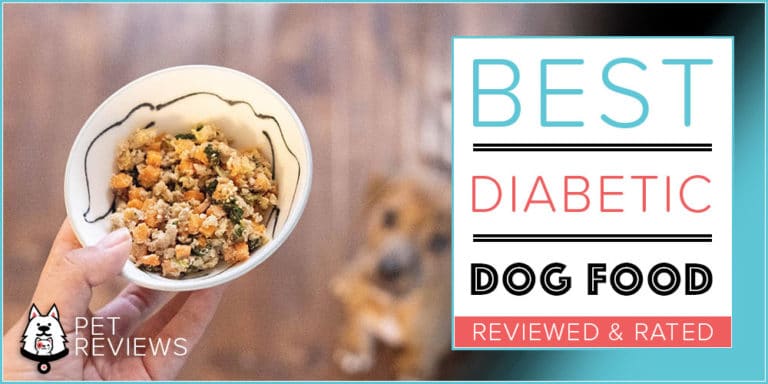Not All Grain Free Foods Cause Heart Disease in Dogs
Quick Guide
The FDA launched an investigation into potential links between canine dilated cardiomyopathy and dogs eating grain-free food. Considering how popular grain-free diets are, it comes as no surprise that many owners are concerned. In the end, we all want only the best for our dogs!
With so many theories and misinformation about grain-free food and DCM floating around many owners are in doubt. We compiled all the information to help you understand the latest developments.
Is there a real link between grain-free food and DCM?
At this point the FDA is still investigating any potential links between DCM and grain-free food. So far, there is no evidence suggesting that grain-free diets cause canine dilated cardiomyopathy.
What is the FDA Investigating?
DCM is not an uncommon condition for dogs, and some breeds have a predisposition for this heart disease. However, when the reports of atypical cases of DCM were reported, the FDA took notice.
The affected breeds include Labrador and Golden Retrievers, Whippets, Bulldogs, Shih Tzus and mix breeds. The only thing that these dogs had in common, is that they all ate grain alternatives in their diet.
The foods of concern are those containing peas, lentils, other seed legumes, or potatoes as main ingredients. At this time, there is no proof that these ingredients are the cause of DCM in these dogs.
Reports of dogs eating grain-free food diagnosed with DCM
After their public notification about grain-free diets and a possible link between DCM, the FDA is still receiving reports. There are many cases still to be examined, and a number of them include breeds that don’t have a known genetic predisposition to this condition.
One of these cases includes two Miniature Schnauzers. Mico and Louie were unrelated, and the only thing they had in common was the home they lived in and the food they ate.
Louie was the first one to experience symptoms of cough, which was misdiagnosed as bronchitis. A couple of weeks later, Louie stopped eating and had troubles breathing.
Once in a hospital, it was discovered that Louie’s heart was enlarged and fluid was filling his lungs. Unfortunately, there wasn’t anything left to do for him, and he died.
Three months later, Mico started to collapse frequently and it was found that he was also struggling with an enlarged heart. Mico has been on heart medication since May 2017 and is doing well now.
According to reports, the majority of dogs diagnosed with DCM ate dry dog food formulas. However, there are also cases of dogs eating raw food, semi-moist food, and wet food who were diagnosed with DCM.
Based on the analysis of these reports it was discovered that 90% of these foods were labeled as grain-free. The remaining 10% of dogs ate foods with grains, some of which were vegan or vegetarian.
These reports also show that the large proportion of reported diets in DCM cases contained peas and/or lentils. Peas are the most commonly used ingredient in these foods, followed by lentil, potato, and sweet potato.
It was also observed that 31% of these diets contained more than one animal protein source. The majority of diets containing animal protein included fish, eggs, lamb, or chicken.
Based on these reports, it is clear that not only grain-free diets are to blame for DCM. It seems that ingredients like peas and lentils are potential culprits, but it is still unknown what their exact role is.
Grain-free food isn’t as dangerous as people think
Unfortunately, not pet food manufacturers have the same level of nutritional expertise and quality control. Which means that not all foods are of the same quality. While some are completely safe, others can lead to health problems.
How is grain-free food manufactured?
Making high-quality pet food is harder than it seems, and not all manufacturers have the means to do it. It is more than just mixing exotic-sounding ingredients that are appealing to us.
The proper nutrients in the right proportions have to be in a diet to make it complete and balanced. Furthermore, the effect of processing has on the food needs to be considered, and not all manufacturers can do so.
Does the manufacturing process cause DCM?
Even if all ingredients are present in the right amount, during processing some valuable nutrients can be lost. Unfortunately, pet food manufacturers aren’t required by law to test the food after the processing.
Despite that, few larger companies do that anyway and manage to exercise rigorous quality control. However, there is a lot of brands that don’t have adequate nutritional expertise and recourses to test the food properly.
This means, that there is no telling if a dog is for sure eating a complete and balanced diet, which in turn can lead to nutrient deficiencies. It is thought that some sort of deficiency is causing dogs to develop DCM.
Some updates about the cause of heart disease
There is a lot of confusion and misinformation floating around, and people mistakenly think it is just grain-free diets, or it is just related to taurine. But things aren’t always as they seem.
What is BEG?
The issue of dietary related DCM in dogs doesn’t seem only associated to grain-free diets. Veterinarian Lisa M. Freeman started calling the potential suspects the “BEG” diets.
They include:
– Boutique companies
– Exotic ingredients
– Grain-free diets
A link between BEG diets and DCM
The obvious link between BEG diets and DCM may be due to the ingredients used to replace grains in grain-free foods such as lentils or chickpeas. However, it can also be due to exotic ingredients like meats, fruits, and vegetables found in BEG diets.
The Reason why BEG causes DCM
The exotic ingredients found in BEG diets are harder to use and require a manufacturer to have much more nutritional expertise. They have different nutritional profiles and digestibility than typical ingredients and the potential to affect other ingredients.
It is still unclear how exactly BEG diets affect dogs, but it is believed that they cause some type of nutritional deficiency that affects the heart.
Taurine deficiency as a cause of DCM
The lack of taurine is a well-known and researched cause of DCM. At first, it was thought that taurine deficiency is causing dogs sick. It turns out, it’s not that simple.
Research about taurine
It is known that Labrador Retrievers and Cocker Spaniels are at risk of DCM caused by taurine deficiency. One study has shown that Cocker Spaniels with DCM with DCM improved when given taurine supplementation.
Certain other breeds are found to be at the increased risk for taurine deficiency and DCM. These breeds include Newfoundlands, English Setters, St. Bernards, Irish Wolfhounds, and Portugese Water Dogs.
For now, the reasons for taurine deficiency in dogs aren’t completely clear. It could be that nutrient deficiency is affecting the production of taurine, or increased loss of taurine in feces, or reduced bioavailability of taurine.
Hopefully, the researchers would be able to shed some light on reasons for taurine deficiency in the near future.
Can taurine supplements help dogs with DCM?
At this point, there are different groups of dogs diagnosed with DCM. The most frequently seen cases include:
- Diet-associated DCM with normal taurine levels
- Dietary unrelated DCM in breeds with genetical predispositions
- Diet-associated DCM with low levels of taurine
As you can see, DCM is more often diagnosed in dogs with normal taurine levels. However, some of these dogs condition improved with a change of diet.
At this point, there is no evidence that supplementing your dog’s diet with taurine will prevent DCM in dogs. The only situation when supplementation can help is if a dog already has a taurine deficiency.
F.A.Q
What should I feed my Dog?
At this point, there is no proof that these ingredients are the cause of DCM in these dogs. Although there it appears to be a link between BEG diets and DCM, other factors can be equally or more important.
Generally, the best thing you can do for your dog’s dietary health is to consult your veterinarian. He is the most competent person to suggest what type of food is right for your dog.
What should I do if my dog is eating “BEG” diet?
If you are feeding a BEG diet to your dog, you should check if it is made by a company with a long track record. If not, we suggest that you start feeding your dog with one that is.
You should research the brand, their nutrition expertise, and quality control. Talking to your vet can also come in handy, and his expertise should help you a lot.
If you decide to switch your dog from a BEG diet to a more traditional one, do your due diligence. Research the brand and make sure that you are feeding a complete and balanced diet according to your dog’s age and activity level.
How can I have my dog tested for DCM?
If you are feeding a BEG diet and your dog has no symptoms of heart disease you can still have him tested. You can measure your dog’s plasma or taurine levels or schedule an echocardiogram to check the heart size and function.
You can also do a blood test called NT-proBNP which is elevated when the heart is enlarged. You should be aware that the normal value doesn’t guarantee that your dog doesn’t have heart disease.
If my dog is eating a BEG diet but has no symptoms, should I test for DCM or switch to a different diet?
It is highly unlikely that most dogs eating BEG diets are going to develop DCM. However, since the exact link between these diets and heart disease isn’t established yet, you should consider what you are feeding your dog.
If your dog is eating a complete and balanced diet from a manufacturer with rigorous quality control and long track, there is nothing to worry about. However, if you are feeding an expensive boutique diet that is based on clever marketing, you should switch your dog’s food.
Grain-free Food Doesn’t Cause Heart Disease if You Choose the Right Food
Although the FDA is investigating a potential link between DCM and dogs eating grain-free food there is no proof that these foods cause heart disease. Furthermore, there is no also no proof that links ingredients in these foods with DCM.
The fact remains that some dogs have gotten sick while eating grain-free food. But if all grain-free foods are bad, wouldn’t all dogs eating them be sick?
Based on the all evidence we have at this time, it is safe to say that not all grain-free foods cause heart disease in dogs. You should always research the food and pick a manufacturer with a long track record, nutritional expertise and rigorous quality control.
And remember, no matter what kind of food you want to feed to your dog, always consult your vet prior to making any changes.









